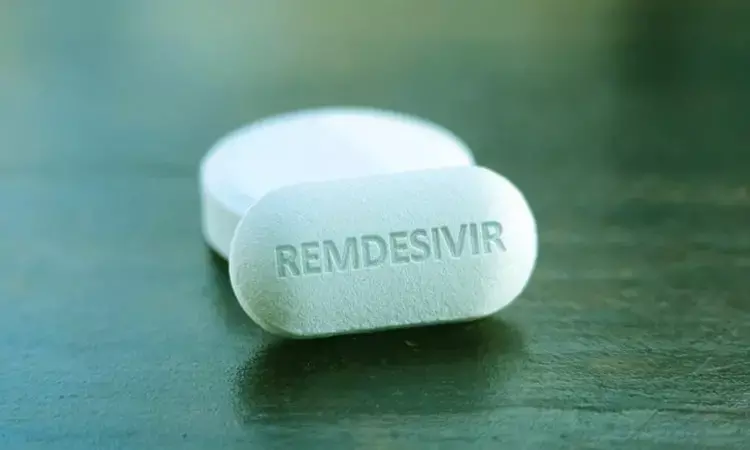- Home
- Medical news & Guidelines
- Anesthesiology
- Cardiology and CTVS
- Critical Care
- Dentistry
- Dermatology
- Diabetes and Endocrinology
- ENT
- Gastroenterology
- Medicine
- Nephrology
- Neurology
- Obstretics-Gynaecology
- Oncology
- Ophthalmology
- Orthopaedics
- Pediatrics-Neonatology
- Psychiatry
- Pulmonology
- Radiology
- Surgery
- Urology
- Laboratory Medicine
- Diet
- Nursing
- Paramedical
- Physiotherapy
- Health news
- Fact Check
- Bone Health Fact Check
- Brain Health Fact Check
- Cancer Related Fact Check
- Child Care Fact Check
- Dental and oral health fact check
- Diabetes and metabolic health fact check
- Diet and Nutrition Fact Check
- Eye and ENT Care Fact Check
- Fitness fact check
- Gut health fact check
- Heart health fact check
- Kidney health fact check
- Medical education fact check
- Men's health fact check
- Respiratory fact check
- Skin and hair care fact check
- Vaccine and Immunization fact check
- Women's health fact check
- AYUSH
- State News
- Andaman and Nicobar Islands
- Andhra Pradesh
- Arunachal Pradesh
- Assam
- Bihar
- Chandigarh
- Chattisgarh
- Dadra and Nagar Haveli
- Daman and Diu
- Delhi
- Goa
- Gujarat
- Haryana
- Himachal Pradesh
- Jammu & Kashmir
- Jharkhand
- Karnataka
- Kerala
- Ladakh
- Lakshadweep
- Madhya Pradesh
- Maharashtra
- Manipur
- Meghalaya
- Mizoram
- Nagaland
- Odisha
- Puducherry
- Punjab
- Rajasthan
- Sikkim
- Tamil Nadu
- Telangana
- Tripura
- Uttar Pradesh
- Uttrakhand
- West Bengal
- Medical Education
- Industry
Remdesivir use may induce hepatobiliary side effects including acute hepatic failure

The pharmacovigilance study published in the Journal of Clinical Gastroenterology and Hepatology investigated the gastrointestinal adverse drug reactions (GI-ADR) associated with remdesivir and identified elevated serum alanine aminotransferase, aspartate aminotransferase, ammonia, and bilirubin levels as some of the hepatobiliary gastrointestinal adverse drug reactions (GI-ADR).
Remdesivir has been shown to provide therapeutic advantages for patients with Coronavirus disease 2019 (COVID-19) from randomized placebo-controlled trials (RCTs) and was licensed for the first time for COVID-19 patients. However, it becomes less apparent whether remdesivir produces a GI-ADRs including hepatotoxicity.
The study aimed to discover a diversified range of remdesivir-associated GI-ADRs utilizing the International Pharmacovigilance Reporting Data Base of the World Health Organization (VigiBase).
Major Highlights of the study
Extra-rare ADRs including hepatic failure or ischemic hepatitis, and the chance of their recurrence undoubtedly rose; nonetheless, they posed an irreparable danger of hepatobiliary harm to the general population. They were reported to be extremely rare.
Serum ALT, AST, and bilirubin and ammonia upgrades, as well as abrupt hepatic failure after correction, were revealed to be the following hepatobiliar ADRs likely linked with remdesivir.
Rare ADRs, including hepatic failure and ischemic hepatitis, were also seen in that research.
In conclusion, this large-scale pharmacovigilance research offers worldwide real world evidence of increased risk of hepatobiliary ADRs, including serum rise ALT, AST, bilirubin, and abrupt liver failure, in relation to remdesivir use. Careful monitoring by hepatobiliary means that a reasonable security margin is maintained while taking remdesivir. The study's results might be beneficial in monitoring the hepatobiliar safety margin and tolerance of remdesivir in COVID-19 patients by doctors and clinicians.
Source
Kim, M. S., Jung, S. Y., Lee, S. W., Li, H., Koyanagi, A., Kronbichler, A., Dragioti, E., Tizaoui, K., Wasuwanich, P., Hong, S. H., Ghayda, R. A., Yoo, H. W., Kim, H., Jacob, L., Salem, J.-E., Kostev, K., Shin, Y. H., Kim, S. Y., Gamerith, G., … Smith, L. (2021). Hepatobiliary Adverse Drug Reactions Associated With Remdesivir: The WHO International Pharmacovigilance Study. Clinical Gastroenterology and Hepatology, 19(9), 1970-1972.e3. https://doi.org/10.1016/j.cgh.2021.04.03
Medical Dialogues consists of a team of passionate medical/scientific writers, led by doctors and healthcare researchers. Our team efforts to bring you updated and timely news about the important happenings of the medical and healthcare sector. Our editorial team can be reached at editorial@medicaldialogues.in.
Dr Kamal Kant Kohli-MBBS, DTCD- a chest specialist with more than 30 years of practice and a flair for writing clinical articles, Dr Kamal Kant Kohli joined Medical Dialogues as a Chief Editor of Medical News. Besides writing articles, as an editor, he proofreads and verifies all the medical content published on Medical Dialogues including those coming from journals, studies,medical conferences,guidelines etc. Email: drkohli@medicaldialogues.in. Contact no. 011-43720751


